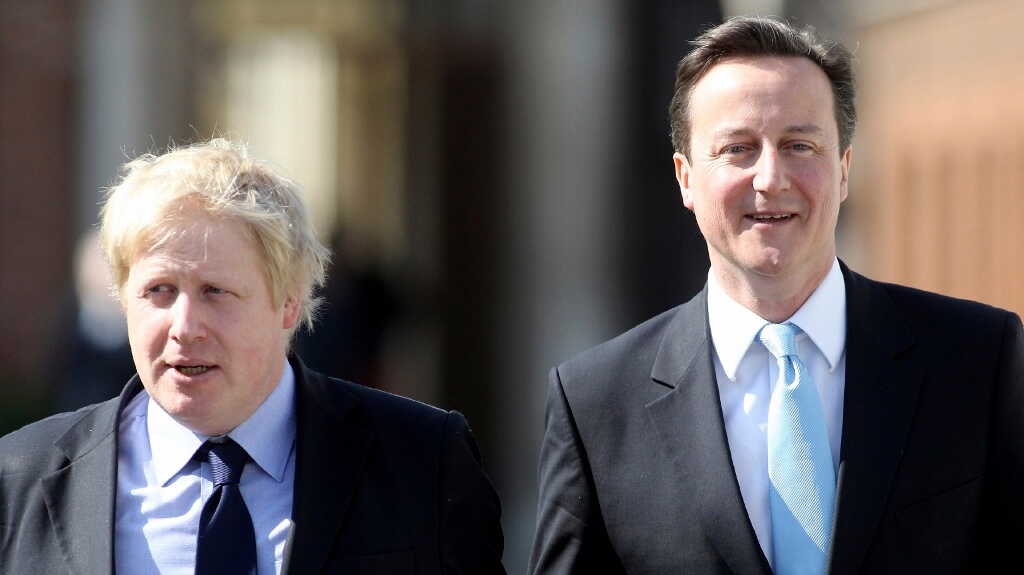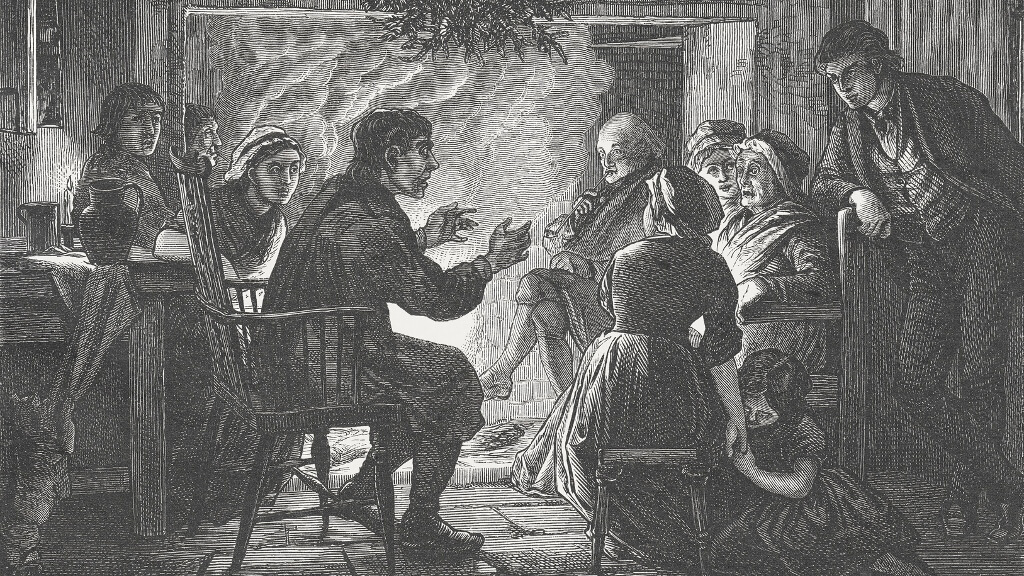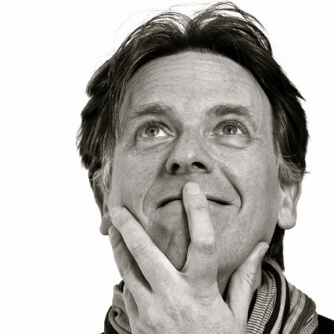The EU Brexit debate has turned the spotlight on a home truth: politicians are fantasists. Here's why we so rarely call them out when they dress wild speculation as fact and what we can learn from their stories.
EU sitting comfortably?
The EU Brexit debate has turned the spotlight on a home truth: politicians are fantasists. Here's why we so rarely call them out when they dress wild speculation as fact and what we can learn from their stories.

So, what’s it to be, then, Remain or Brexit? It’s a momentous choice we’re facing and there are politicians on either side lining up to persuade us. But who to trust? How to distill the substance from the rhetoric? Who is telling the truth?
My answer is no-one. This isn’t a value judgment about politics, it’s a philosophical fact. No-one is telling the truth. This is the future we are talking about and, truly, no-one knows. So in lieu of certainties, politicians fall back on storytelling and they are quite masterful at it.
Having worked with leaders on story for a couple of decades I wanted to share some insights about why our politicians are relying on fiction not fact – and how they are able to be so persuasive. This isn’t going to stop them fibbing – but it might make us more aware of what’s going on and our own unconscious part in the game.
It’s all made up
The first thing to point out is that pretty much everything you are thinking about the world right now is made up. It didn’t happen, isn’t happening and isn’t going to happen. Our memory is selective, the present is elusive (even if you are a mindfulness ninja) and the future is guesswork at best.
Dr Maria Wimber, lead author in a recent brain imaging study concluded “By simply using our memory system via selective retrieval, we adapt the landscape of memory,” Our brains are actually hindering us recalling what happened in the past and our capacity to make good judgment on the future.
The human mind can have up to 50,000 thoughts a day. 70-80% of those are negative. Combine that with the increasingly innovative, disruptive, fast-paced world we live in and it’s easy to see why we struggle to stay orientated.
Perhaps that’s why we have politicians in the first place. To avoid having to deal with uncertainty, we elect people who are certain on our behalf. And if they are wrong – we can blame them and carry on with our lives.
You may think it’s a wonder that the human race has survived at all when it has such a tenuous grip on reality. As it turns out, the human mind’s unique ability to fictionalise is absolutely key to our evolutionary success.
As Yuval Harare points out in Sapiens, story-making is the key to social control. Think about it. If you are a sabre toothed tiger wanting to control a small pack of fellow tigers you can do so by dealing only with the present moment.
The sun goes down, let’s sleep. You’re thirsty, let’s drink. You’re hungry, time to hunt. But if you want to control thousands, millions, whole nations, it’s essential to imagine what isn’t: An unseen divinity or a distant promised land, a cathedral that is destined to be built, an unseen enemy that needs to be resisted.
Our human ability to speculate separates us from other species – but it also makes us prone to manipulation. As Harare puts it, “You could never convince a monkey to give you a banana by promising him limitless bananas after death in monkey heaven”.
Successful leaders through the ages have been people who could help us imagine what isn’t here and make it real. The best are meaning makers. The worst are fear-peddling despots. And the power tool they use to engage us – for good or ill - is story-telling.
Read On:
Should SMEs Be Taking More Responsibility For The Brexit Debate?
Brexit: A Few Economic Considerations You Might Not Have Thought Of
The Brexit Excuse: Why We Must Take Responsibility For UK Growth
So back to the present. When you next tune into the EU ‘debate’ (really a narrative competition) how will you know politicians are using story to create meaning in your mind – to what I call future-hack you? Below are a few signs to watch out for. But remember three things.
First, these politicians aren’t necessarily lying. Many of them actually believe their stories to be real. In some ways that’s scarier. The second point to bear in mind is that we need stories. In a world which is as complex and uncertain as our own we need to be making sense of what’s happened, happening and going to happen. Having a narrative is essential.
The question you have to answer is whether the story you are choosing is healthy and that you are willing to live with the consequences. And finally, if you can’t find anyone peddling a story you like, create your own. Become an author of your own future and shape the world instead of voting for others to do it for you.
Are you sitting uncomfortably?
If you are feeling anxious, particularly about a third of the way into a politician’s speech, it’s a story. Dissonance and upset are part of the storyteller’s key engagement tools. “The cat sat on the mat is not a story” says John Le Carré, “the cat sat on the dog’s mat is”. A politician first needs to get us feeling uncertain so we will crave their solution.
First, disrupt the status quo before you offer to restore it – with bells on. The Brexiter’s focus on immigration is designed to do this. As the Remainers warn on economic instability. Both are suggesting in their way that life as we know it is about to end so we had better pay attention.
Apocalypse Soon
Central to the glorious, titillating seductiveness of a good scare story is an enemy – the more plausible and threatening the better. Enter the faceless, mendacious technocrats that Brexiters say are working behind the scenes to erode our sovereignty. These are the same vengeful agents who Remainers claim will punish our exit with crushing trade tariffs.
Boris and Gove upped the ante recently urging us to picture 80 million Turks sweeping into our welfare system like a latter-day army of Saladin. Remainers retaliate with bogey men of their own; the same Boris and Gove but cast as an unholy Dastardly and Mutley duo steering our country to ruin.
Let me be specific for a moment…
Good storytellers want their fables to be as plausible as possible in our minds. That’s why they hard-wire their fiction with real-life details we can believe in. Sights, sounds, names, dates, specifics. Politicians have two favourites. The first is the personal anecdote. To shore up a fictional concept they will give a believable example.
Whenever you hear a phrase like “I was talking to Brenda, a 45 year old mother of three in Hull the other day and she was telling me…” you know you are deep in Story Country. The second beloved technique is, of course, the use of figures.
Listen out for “according to recent statistics…” or “independent studies show”. It’s tempting to believe that numbers don’t lie, that statistics belong somehow in the incontravertably real world.
Whenever I feel myself being lulled back to compliance by a compelling list of numbers, remember what a practiced statistician once told me. “All numbers are looked up or made up. And those that are looked up – are made up”.
The F-word
Not fear, we’ve dealt with that above, but Fantasy. Stories are fuelled by our very human yearning for a happy ending. The earliest examples of this are the life-after-death tales found on Neanderthal graves. We’d love to live happily ever after but when a politician starts promising you will - beware.
It’s hard to believe the German nation fell for Hitler’s fantastical promise of a thousand year’s of stability, but they did. I hear a faint echo of this kind of empty guarantee when that reclaiming our sovereignty (it even sounds like pulling a sword out of a mythical stone) will de facto ‘make Britain great again’.
When people criticize the Remain campaign for failing to be more positive, what they are really asking for is a compelling, pro-European happy ending we can believe in.
Eight year olds won’t settle down and turn off the light until their parents have assured them the bedtime story turns out ok. Adults aren’t as different as we’d like to think and our political leaders know that; they use storytelling to put us to sleep.
David Pearl is a business innovator and founder of Pearl Group
Thanks for signing up to Minutehack alerts.
Brilliant editorials heading your way soon.
Okay, Thanks!





